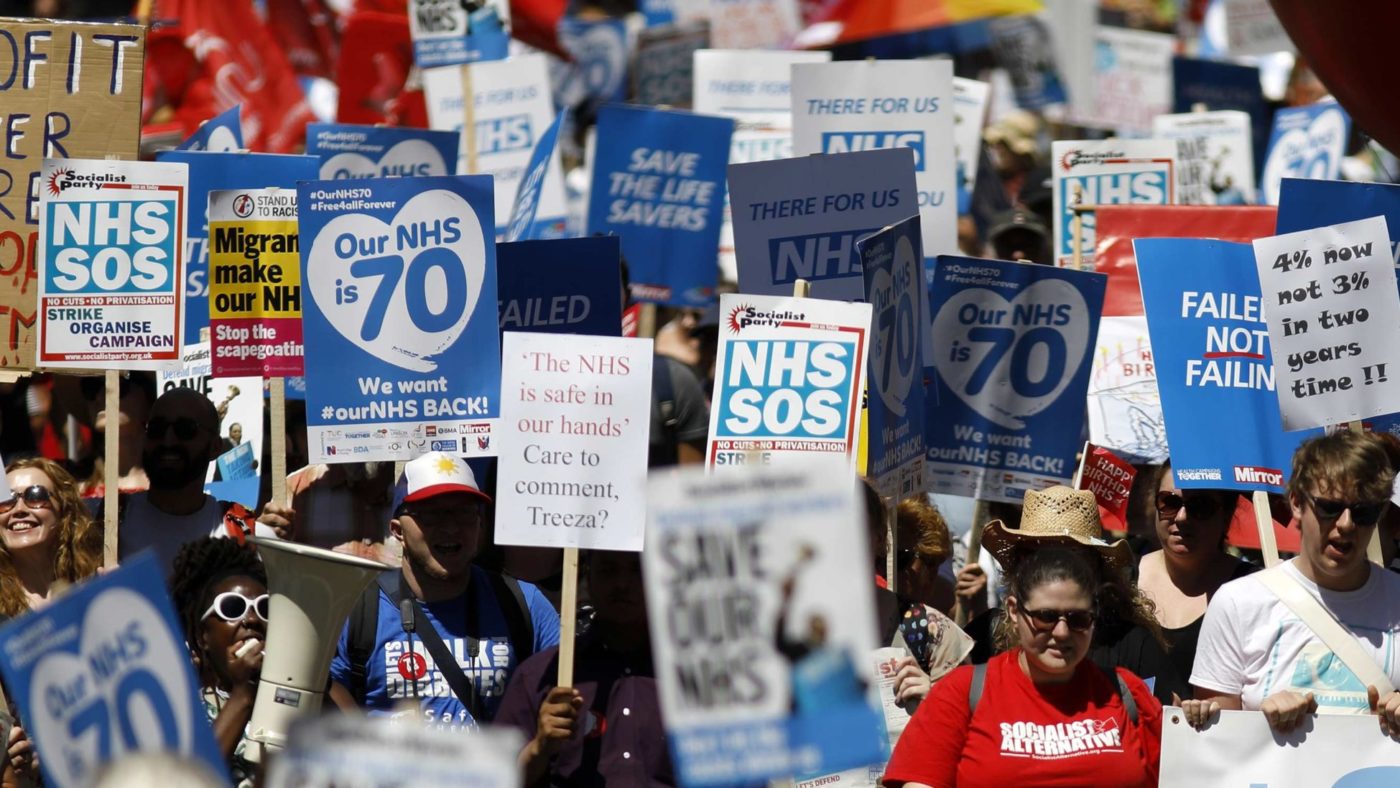This Thursday a service was held in Westminster Abbey to mark the 70th anniversary of the National Health Service. It was a fitting setting to reflect on an institution that long ago supplanted the Church of England as Britain’s national religion.
To mark the occasion, our parent organisation, the Centre for Policy Studies, published a landmark report on NHS pay. It reveals a system that is unwieldy, outdated and, perhaps most importantly, very unfair – to staff, to patients and to taxpayers. Given that pay accounts for almost two thirds of the total health service budget, ensuring a more flexible, equitable system ought to be among Jeremy Hunt’s top priorities.
The iniquitous pay system reflects a broader problem with inflexibility and performance management. Making changes within the organisation is also far too difficult. As the report’s author, neurologist Dr Paul Goldsmith, points out: “The NHS is full of incredibly bright, talented and dedicated people with lots of excellent ideas and initiatives, but is really poor at scaling and spreading innovation.”
The challenges of reform are made all the more difficult by the health service’s cult status. While the appreciation for a service that is free to the patient is understandable, this week’s anniversary love-in is at best mawkish and at worst a distraction from serious problems.
A recent report from the King’s Fund found that although very equitable, the NHS was the third worst out of 18 developed countries when it comes to “amenable mortality” – that’s keeping people alive, in plain English.
Yet to question any of the sacred tenets of the religion is often met with howls of outrage, with calls for anything resembling “privatisation” the ultimate heresy. This is nothing new – as Kristian Niemietz has noted on CapX, the “enduring fantasy” of privatisation has been with us for decades.
Another common canard is that criticism of the organisation is an attack on NHS staff themselves. Nothing could be further from the truth. The fact that such manifestly well-qualified, passionate people work in the health service and it still produces underwhelming outcomes is surely the ultimate red flag.
The US system, of course, is a useful rhetorical crutch for advocates of our own centralised, taxpayer-funded model. And while it can be satisfying to chuckle that the Americans spend more per capita on health without even offering universal care, that’s probably not the benchmark we should be aiming for.
As we have noted elsewhere on CapX, there are plenty of market or insurance-based systems which offer a better standard of care than the NHS, while also providing universal coverage. For all the “envy of the world” bromides, it’s unlikely many Swiss or Singaporeans look upon our system with much jealousy.
What is the way forward? To listen to the Labour Party, the answer is simply to throw more money at the problem, presumably by squeezing the rich and nasty corporations. The Tories are not much better, with Theresa May joining the funding arms race by recently promising an extra £20bn as a “birthday present” – a bit of an odd way to decide a government’s spending priorities.
But more funding is manifestly not enough, nor is it promising more money any guarantee that it will be spent wisely. As Nye Bevan himself said, the health service “must always be changing, growing and evolving”. Never has that call been more urgent than now, with our ageing population and costs for drugs and equipment seemingly on an endless upward ratchet.
What does “reform” really mean in the NHS context? It’s clearly unrealistic to expect the Government to somehow copy-and-paste a continental-style model onto our own. That does not mean, however, that we cannot learn from other countries about how to make our system more efficient and responsive.
Several NHS trusts, for instance, have successfully trialled the Buurtzorg community nursing model – a Dutch system that strips out middle management to give nurses both more power and time with patients. If scaled up – and it’s a big if – there are billions of pounds of savings to be made just in this area.
Above all though, we need to take the toxic politics out of the NHS and have an honest conversation. The Centre for Policy Studies, for example, has called for a Royal Commission to look at the way forward.
As our 70-year-old national religion stumbles on, let us pray our current crop of leaders are prepared to make the difficult choices to provide the health service we all deserve.


